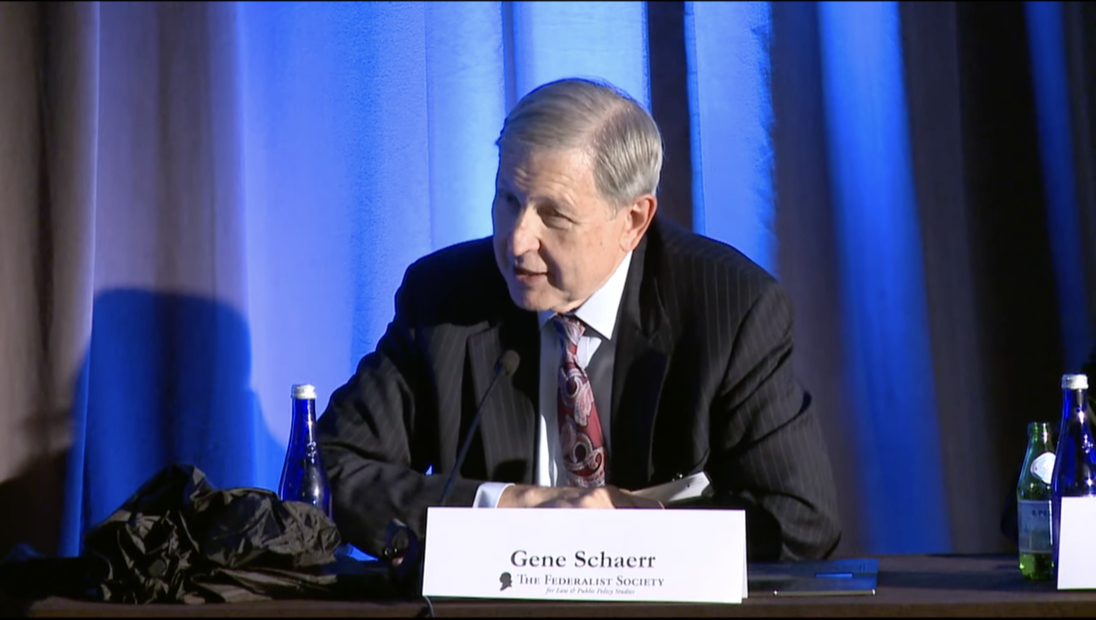|
Four experts on civil liberties, including PPSA’s general counsel Gene Schaerr, explored the tension between liberty and safety at a Federalist Society discussion on Section 702 of the Foreign Intelligence Surveillance Act on Friday. A newsworthy declaration was made by Beth Williams, board member of the government watchdog, the Privacy and Civil Liberties Oversight Board (PCLOB) about balancing Section 702 reform with national security. Williams called Section 702 a “highly valuable” program that “provides irreplaceable intelligence” that generates two-thirds of the president’s daily intelligence briefing. Williams added that all five PCLOB members, while disagreeing on many points, agreed that: “While Section 702 is not a bulk collections program, we agreed that reforms to the program are in order to fix some problems with its operation, particularly by the FBI and to prevent its possible misuse for political and other improper purposes. This can be done without degrading the value of the program.” This was a notable declaration given that Williams and board member Richard DiZinno had dissented from PCLOB Chair Sharon Bradford Franklin and the board’s majority on the need for warrant requirements and other reforms. Williams’ remarks validated a statement by Chair Franklin that no PCLOB member “has called for the program to lapse and also no board member has called for clean reauthorization of the program." A sharp divergence in world views emerged between the constitutional vision of Gene Schaerr and a dark, dystopian future suggested by former NSA lawyer Stewart Baker. Schaerr kicked off this part of the discussion by asking the Federalist Society audience to conduct a thought experiment by imagining what James Madison would say if we could bring him up back to life and up to speed about the many ways the FBI has to surveil Americans. “He would be horrified,” Schaerr said by the denigration of the Fourth Amendment and the breakdown between congressional and executive powers. Schaerr imagined Madison reminding us that the founders “decided that way we set up this government would be to accept some inefficiencies as the price of freedom.” Baker posited a world in which artificial intelligence enables anyone who wants to develop more lethal toxins and infectious diseases to do so, a world of weapons of mass destruction in the hands of “disgruntled teenagers.” Baker’s reply to Schaerr’s thought experiment: “I don’t think James Madison would come back and say, ‘well, you’re just going to have to live in my world and suffer 21st century consequences.’” Gene Schaerr listed the “multipronged” ways the FBI can surveil Americans – from Section 702 information, to personal, sensitive data scraped by apps and purchased by the FBI and other government agencies from data brokers, to executive orders that allow the government to extract Americans’ texts, emails, and browsing histories from the cloud. Given the pervasive reach of such government surveillance, are the alarming fears of technology and hostile actors reason to give up on the Constitution and live in a surveillance state? This discussion leaves us to decide: Do you agree with Stewart Baker, that we must embrace pervasive surveillance to survive? Or do you agree with Gene Schaerr, who concluded: “We can realign federal government surveillance powers with the founders’ vision of what our government can be.” Watch: Comments are closed.
|
Categories
All
|


 RSS Feed
RSS Feed